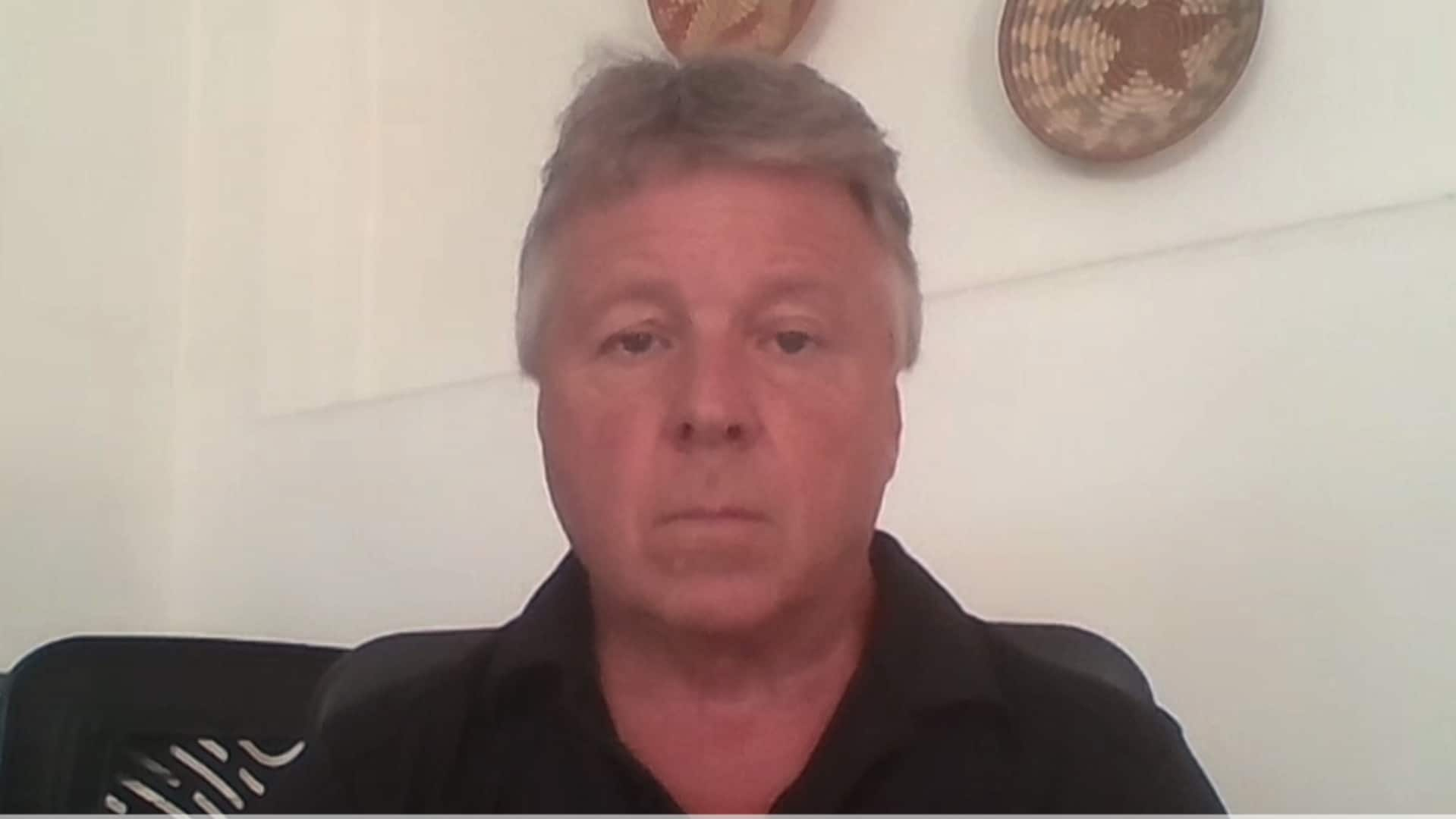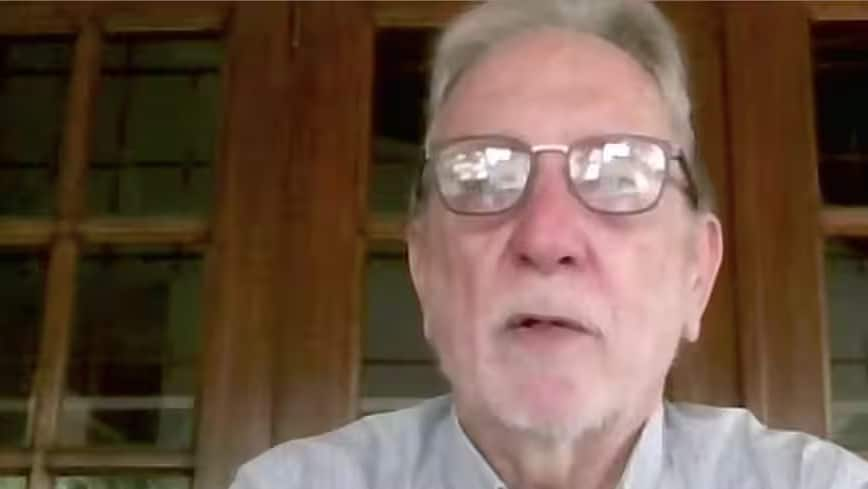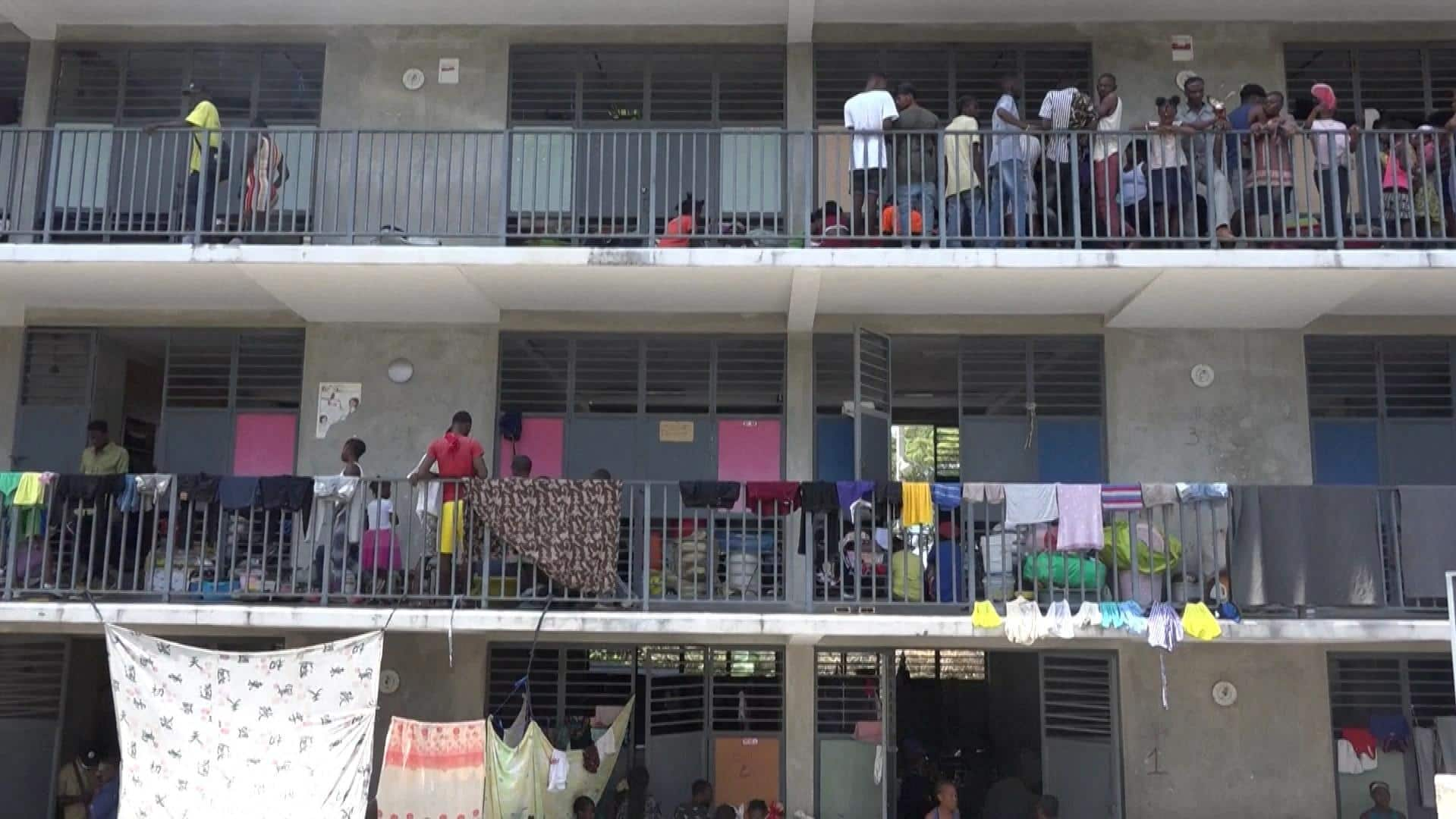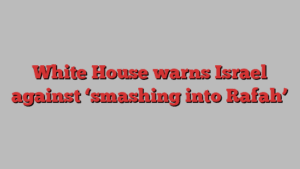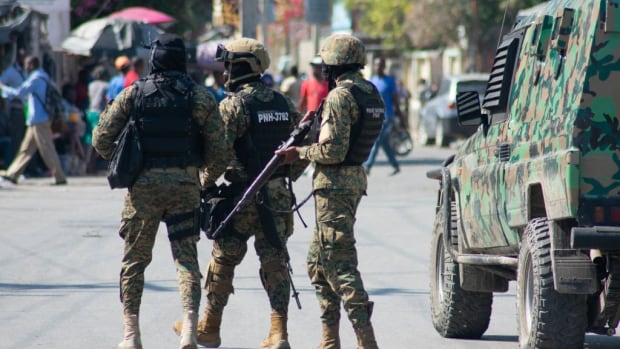
As gangs tighten their control and confusion reigns in Haiti, Canadians there say the crisis in the Caribbean nation has been years in the making, and all they can do now is hunker down amid the escalating violence.
They say it’s gotten so bad in the past week that it’s impossible to leave the country by road, sea or air — and even venturing outside is too dangerous.
Richard Phillips of Tisdale, Sask., says he arrived there amid relative peace on Feb. 25, four days before gangs carried out a series of attacks across the capital with the aim of blocking the return of Haiti’s unelected prime minister, Ariel Henry, who was in Kenya at the time.
“It’s absolute chaos down here right now,” he said.
Phillips was supposed to fly out on March 3, the day Haiti’s government declared a state of emergency, and the airport was closed, so he went to a nearby hotel.
Hundreds of rounds went off right beside the hotel that day, and heavy gunfire has continued every night, Phillips told CBC News on Friday, with “gangs shooting at the police, then our hotel security, I think, shooting at the gangs a little bit, then the gangs shooting back.”
Richard Phillips is a Canadian agricultural consultant who regularly travels to Haiti to train workers on the use of farm equipment. He says this is the first time criminal gangs have shut down traffic to the Dominican Republic at the ports and the international airport.
On Tuesday, Phillips said he has since moved to the outskirts of Port-au-Prince to a fellow Canadian’s home, where “we feel fairly secure.”
This is his 37th trip to the country, which “has been through some tough times,” he noted.
“But this is new. What’s we’re experiencing now is a new level of stress in terms of that airport being closed and no exits out of the country. This is new for me too.”
Schools and businesses remained closed on Tuesday amid heavy gunfire between police and gang members, who control an estimated 80 per cent of the capital.
Phillips says all the major roads out of the city are controlled by gangs, so venturing out even in a vehicle raises the risk of being robbed, kidnapped or killed. Gang members even control the port and are looting containers, he said.
Global Affairs has advised Canadians to “shelter in place.”
Tom Adamson, a Canadian who has lived in Haiti for decades, says ‘this is the worst it has ever been’ in the Caribbean country as far as gang violence goes.
Tom Adamson, a Canadian-born businessman who has lived and worked in Haiti for 45 years, operates a mattress factory in Port-au-Prince but has not been able to visit it for 16 months because he would have to go through “some very dangerous areas.”
“Our trucks have managed to get through by paying a tariff to the gangs every time they drive through, but if I or my daughter, who works with me, if we try to go to the factory, it could very easily turn into a kidnapping, so we just haven’t been.”
“I think this is the worst it has ever been,” Adamson told CBC News on Tuesday. “There has been a deterioration over the past five or six years, with the gangs getting stronger and stronger.”
Quebecer David Rocheleau went to Haiti for work at the end of February and is also unable to leave. He’s sheltering at a friend’s house in Petion-Ville, a suburb of Port-au-Prince.
“There’s no way out and there’s no foreseeable way out in the future,” he said, adding that he and his friend are hoping their food doesn’t run out.
Some Haitians removed from their homes due to widespread gang violence are struggling to get by with just the aid they’re receiving from UNICEF. Potable water is constantly in short supply, says Natacha, a mother of three temporarily staying at a school-turned-shelter.
The country’s gang violence worsened in July 2021, when President Jovenel Moïse was assassinated in his home. The government later appointed Henry as prime minister.
Henry, who said Monday he will resign, was in Kenya last month to push for the deployment of a multinational peacekeeping force.
A UN-backed deal for such a mission has languished for months, blocked by internal legal issues. Haiti had requested an international force, as well as economic aid.
Catherine Buteau of Montreal, who has friends and family in Haiti, says its citizens have previously expressed their worries and frustrations, to no avail.
They “have been sounding the alarm for the past three years and even more, taking to the streets, travelling, going to hearings, giving testimonies about the violence that they’ve been experiencing … and they have just fallen, I would say, on deaf ears,” she told CBC News Network on Monday.
She says her parents are now unable to leave the house, including her mother, who’s a doctor and had been going to the hospital every day to work.
Everyone in the capital is staying vigilant, checking the news and checking with neighbours to make sure it’s safe to go out, she says.
“Even if you do go out, there’s this saying among Haitians … to say that ‘This could be your last day,'” she said
Buteau says if she doesn’t hear from her family for a few hours she “immediately jumps to the worst-case scenario.”
